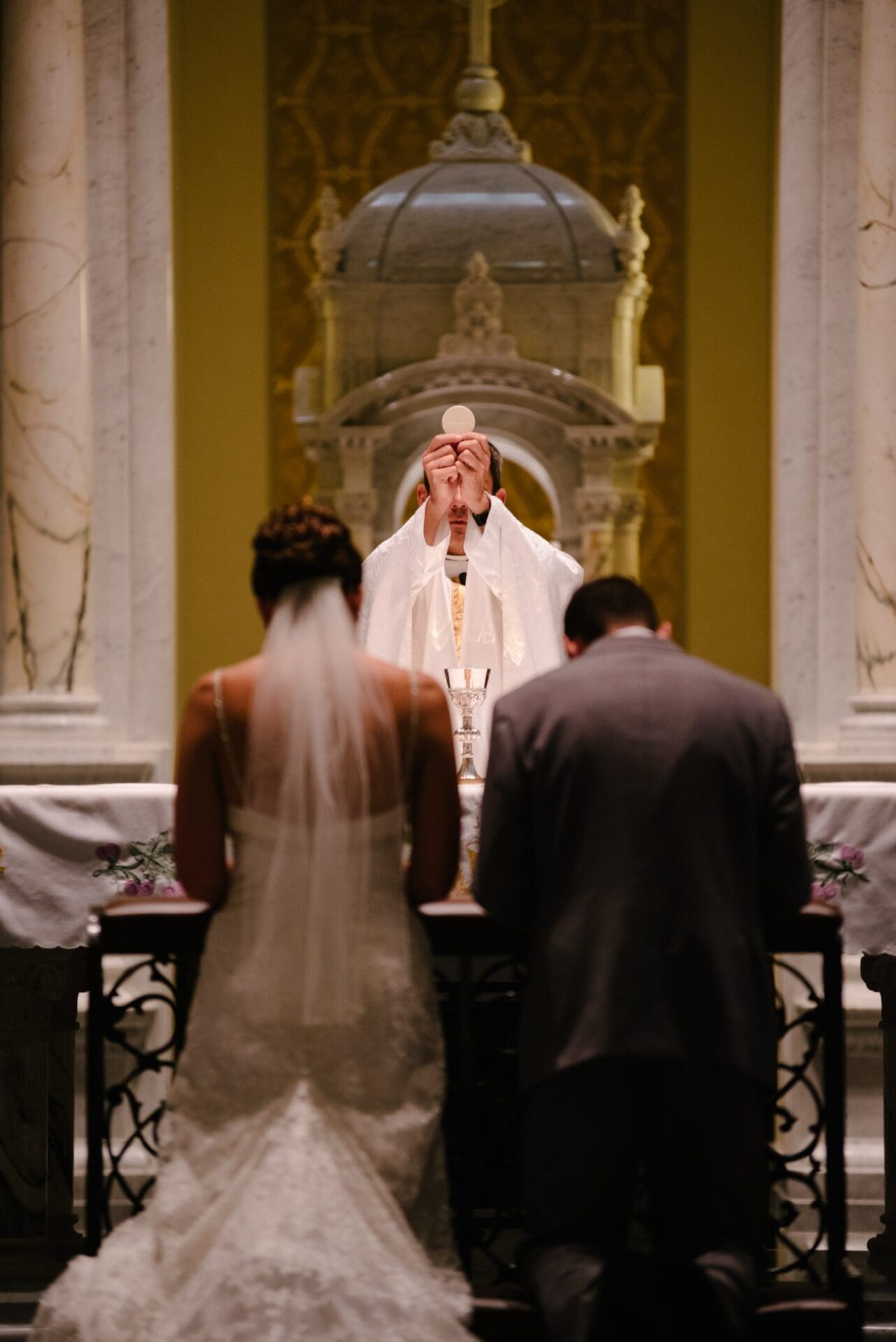
Pope Francis’s recent exhortation, Guadete et Exsultate, “Rejoice and be Glad,” reproposes “the call to holiness in a practical way for our own time, with all its risks, challenges and opportunities. For the Lord has chosen each one of us ‘to be holy and blameless before him in love’ (Ephesians 1:4)” (2). As the Holy Father says himself, the letter is not meant to be a treatise or discussion on the methods of acquiring holiness (ibid.), a review of “the means of sanctification already known to us,” such as the sacraments (110). Still, reproposing holiness without reproposing the liturgy and sacraments is no easy task.
I am especially mindful of this relationship between liturgy and holiness today as two of my own children, Helen and Ingrid, will soon be Confirmed and receive first Holy Communion, respectively. And to what end? Holiness. Sanctification. Divinization.
Pope St. Pius X saw the active participation in the sacred liturgy as a source of “true Christian spirit” which should “flourish in every respect and be preserved by all the faithful” (Tra le Sollecitudini). The Second Vatican Council, sixty years after Pope St. Pius X penned these moving words, would incorporate and elaborate upon the liturgy as the source of holiness:
“The liturgy in its turn moves the faithful, filled with ‘the paschal sacraments,’ to be ‘one in holiness…’. From the liturgy, therefore, and especially from the Eucharist, as from a font, grace is poured forth upon us; and the sanctification of men in Christ and the glorification of God, to which all other activities of the Church are directed as toward their end, is achieved in the most efficacious possible way” (SC, 10).
Pope St. Pius X made the recovery of the “liturgical spirit” the guiding principal of his papacy. Desiring “to restore all things in Christ” (Instaurare Omnia in Christo), his papal motto, this Pope of the Eucharist encouraged and legislated two pastoral changes.
First, in 1905, Pope Pius X desired that the faithful “be invited to the sacred banquet as often as possible, even daily, and should benefit by its most abundant fruits” (Sacra Tridentina). His promotion of frequent communion responded to the errors of the age committed by those latter-day Jansenists who “contended that the Most Holy Eucharist is a reward rather than a remedy for human frailty” (see 1910 decree, Quam Singulari). It is true that each of us is “not worthy” that Jesus should “come under my roof”—as we profess before each Eucharistic reception; but it is precisely because we are sinful that we seek the source of sanctity—and the true Christian spirit. As Pius X’s decree recounts, “The holy Fathers and writers of the Church testify that this practice [of frequent, worthy communion] was continued into later ages and not without great increase of holiness and perfection” (1905 decree Sacra Tridentina).
In Pius X’s second pastoral action regarding the Eucharist, only five years later, he changed the age of a child’s first Holy Communion from age 12 or 14 to “the age of discretion,” that is, about age seven. His purpose for the move was the same as his promotion of regular communion for adults: holiness. As his decree says, “in order to…bring about that children even from their tender years may be united to Jesus Christ, may live His life, and obtain protection from all danger of corruption,” from the age of discretion “begins the obligation of fulfilling the precept of both Confession and Communion” (1910 decree, Quam Singulari). The fount of holiness is the open side—the open heart—of Jesus, and it is in the liturgy and sacraments, especially the Eucharist, where we drink from this wellspring.
Pope Francis recalls that the Mass and Eucharistic adoration, among other traditional practices, are “powerful weapons” on “our path towards holiness” (Gaudium et Exsultate, 162). May his letter’s recent insights, together with the liturgy and sacraments, lead to a “renewal of all things in Christ” and through Christ to the sanctification of us all.


